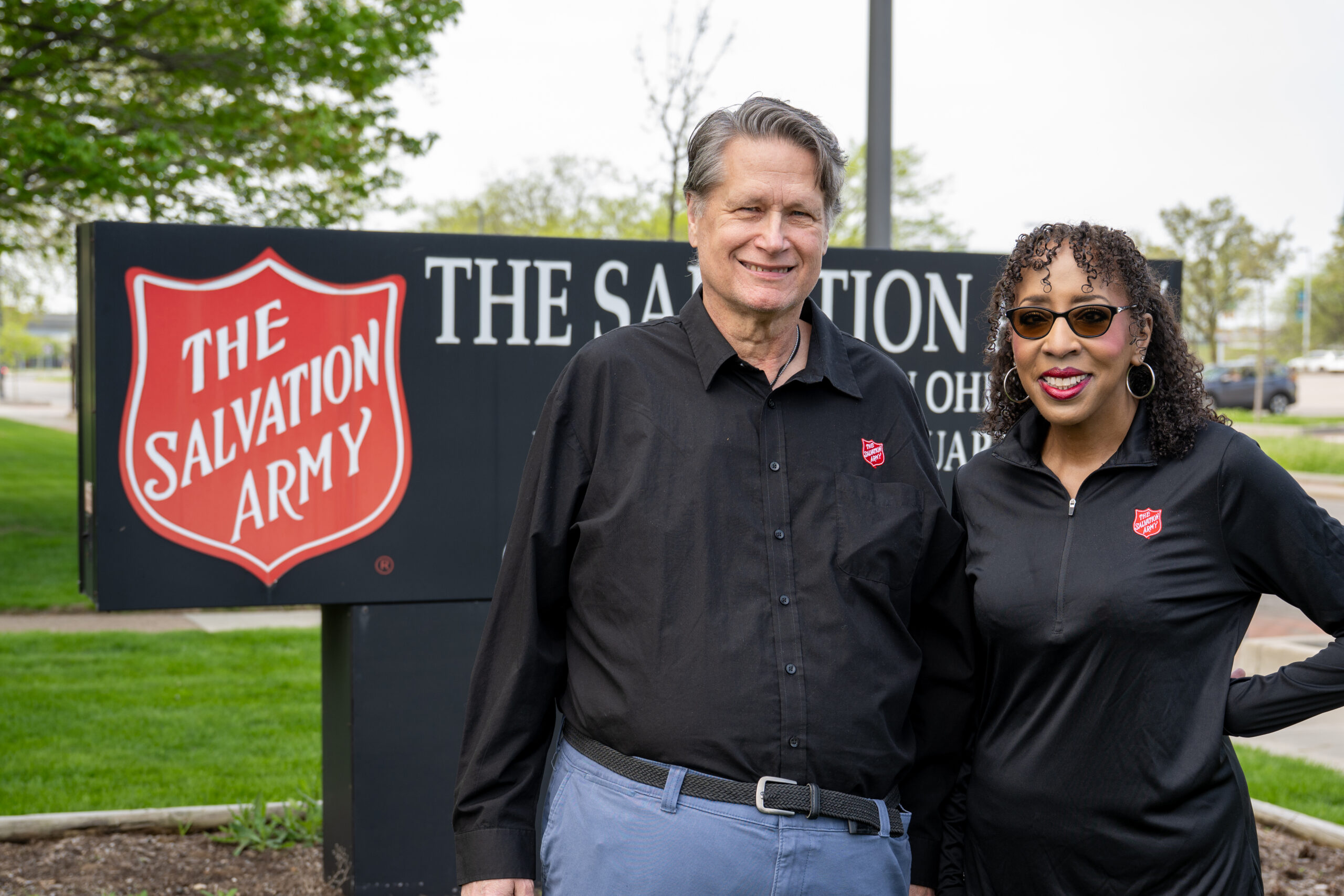Rahna and Mark Fahringer
by Hugo Bravo

“I didn’t want to volunteer at first,” says Rahna Fahringer (left), with Mark. “All I wanted to do was be alone and think about what had happened to me. But my therapist insisted that I needed to get out of the house to help me with my depression.”
Rahna Fahringer took precautions before starting a relationship with Terrence Abel, who had just served time in jail for petty theft. She ran a background check on him to make sure that he was being honest about his crimes, specifically looking to see if there were any cases of violence or domestic abuse. When she saw that there weren’t, Rahna introduced Terrence to Mark Fahringer, her ex-husband and father to their two children, Brock and Blair.
“He seemed great for her, and he sounded so motivated to change and move on from his past,” remembers Mark.
Terrence worked as a washer and dryer repairman, and Rahna reluctantly let him use her garage as a repair shop and storage space. But after six months, he wasn’t getting the supplies and machines he needed to continue working.
“This was where it went downhill,” says Rahna. “He had lost his livelihood and started becoming very angry. Eventually, he also became abusive towards me.”
With her initial fears now a reality, Rahna made Terrence leave her home and got a protection order against him. But on a Friday afternoon in November 2012, Terrence broke into Rahna’s house armed with a gun and said to her, “I came here because I’m going to kill you and myself today.” Terrence held Rahna hostage for 30 hours, shooting her in the leg about an hour into the ordeal.
SWAT team negotiators kept speaking with Terrence on the phone, eventually talking him into accepting a food delivery through an open window. After an unsuccessful attempt to grab him, members of the SWAT team opened fire and killed Terrence through that window—but Rahna was shot a second time, hit in both hands as she covered her face.
The event became the main local news story, and in the small community of Brunswick, Ohio, Rahna became a figure of resilience and survival. A few months later, at a vigil for victims and survivors of domestic abuse, Rahna shared her story.
“Having worked in social services, Rahna had an idea of what to do and what Terrence wanted to hear so he wouldn’t kill her,” says Mark. “She was a warrior, determined to survive for her children.”
Rahna couldn’t go back to work because of her injuries. Her therapist suggested, however, that she find somewhere to volunteer. Mark, who worked for The Salvation Army Service Extension Unit in Brunswick, recommended her for a role in their office.
“At the time, we had lost some funding,” says Mark, “but we still needed a volunteer to be in our building a few days a week.”
For Rahna, it was all new at first. She says, “I remember being confused when I received a call asking if The Salvation Army could assist someone paying for their car repairs.” Mark informed her that, in fact, the Army could help cover the purchase for parts.
Mark also started the 49-9 Project, a prison ministry program under The Salvation Army’s Northeast Ohio Division to help guide recently released inmates to available resources. It began as a 92-page directory to give away in prisons but grew to include classes, case management, mentoring, and job search assistance. The Christian-based program is named after Isaiah 49:9 (NLT): “I will say to the prisoners, ‘Come out in freedom,’ and to those in darkness, ‘Come into the light.’ They will be my sheep, grazing in green pastures.”
“The God moment is when you come into freedom. But what about going from darkness to light?” says Mark. “Prisoners come out of jail with nothing.”
One of the events hosted by the 49-9 Project is a reentry simulation, where inmates learn to navigate their first four weeks out of prison. Some start out with mandated court appearances; others, with limited funds or a lack of documents. Rahna has been involved in this new ministry too, speaking at presentations for inmates who are about to start life again on the outside.
“I’m always learning more about The Salvation Army. Being here has helped me, and I want to be more productive, maybe even find ways to directly help others inside prison,” says Rahna. “I still feel like there’s more that I could do.”

